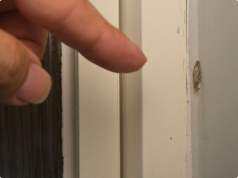You don’t need to be binging on candy or soda to be overloaded with sugar.
In fact, you might be consuming dangerous levels of sugar every day — without even knowing it.
From “healthy” breakfast cereals and fruit-flavored yogurts to ketchup, bread, and so-called “low-fat” snacks, hidden sugars are hiding in plain sight. And the average American eats over 17 teaspoons of added sugar per day — more than double the recommended limit.
The American Heart Association advises:
- Men: No more than 9 tsp (36g) of added sugar daily
- Women: No more than 6 tsp (25g)
Yet most of us far exceed that — and our bodies are sending loud, clear signals that we’re in sugar overload.
Sugar isn’t just about weight gain or cavities.
When it floods your system daily, it disrupts hormones, damages organs, ages your skin, and messes with your mood.
Here are 8 unmistakable signs you’re consuming too much sugar — and what you can do to turn it around.
🔍 1. You’re Always Hungry — Even Right After Eating
You just finished a meal, but 45 minutes later, you’re raiding the pantry.
Why?
High-sugar or refined-carb meals cause a rapid spike in blood glucose, followed by a surge of insulin to bring it down. But insulin often overcorrects — crashing your blood sugar too low.
This blood sugar rollercoaster leaves you feeling:
- Ravenous
- Shaky
- Irritable
- Craving sweets
✅ Fix it:
Pair carbs with protein, fiber, and healthy fats (like eggs, avocado, nuts) to slow digestion and keep blood sugar steady.
🔍 2. You’re Tired All the Time — Even After 8 Hours of Sleep
You’ve slept well. You’ve had coffee. But you’re still dragging through the day.
Excess sugar wrecks your energy at the cellular level. Over time, high sugar intake leads to insulin resistance — meaning your cells stop responding properly to insulin and can’t efficiently use glucose for fuel.
📉 The result?
Chronic fatigue, brain fog, and low stamina — no matter how much you rest.
✅ Fix it:
Cut back on sugary snacks and processed carbs. Focus on whole, unprocessed foods like vegetables, legumes, and lean proteins.
🔍 3. You Crave Sugar — Constantly
You tell yourself you’ll just have one cookie… but end up eating half the pack.
This isn’t a lack of willpower — it’s biology.
Sugar triggers a dopamine release in the brain’s reward center — the same pathway activated by addictive substances. The more sugar you eat, the more your brain craves it to feel that same pleasure.
Over time, you need more sugar to get the same high — a classic sign of dependency.
✅ Fix it:
Gradually reduce sugar. Swap sweets for:
- Fresh fruit
- Cinnamon (naturally sweet and blood-sugar friendly)
- Dark chocolate (70% cocoa or higher)
🔍 4. You Have Frequent Breakouts or Acne
Clear skin starts from within — and sugar is one of its worst enemies.
When you eat sugar, it spikes insulin and IGF-1 (insulin-like growth factor) — hormones that:
- Increase oil production
- Trigger inflammation
- Speed up skin cell turnover
This creates the perfect storm for acne — especially on the face, chest, and back.
Multiple studies link high-glycemic diets to increased acne severity.
✅ Fix it:
Cut out sugary drinks and refined carbs. Add skin-supportive foods like:
- Fatty fish (rich in omega-3s)
- Leafy greens
- Berries (packed with antioxidants)
🔍 5. You’re Gaining Weight — Especially Around the Belly
If your waistline is expanding, sugar — especially fructose — is likely a major culprit.
Fructose is primarily processed in the liver, where excess amounts are converted into fat. This can lead to:
- Visceral fat (dangerous belly fat wrapped around organs)
- Fatty liver disease
- Insulin resistance
That stubborn belly pooch? It’s often a sign of metabolic dysfunction — not just overeating.
✅ Fix it:
Eliminate sugary drinks (soda, juice, sweetened coffee). Focus on whole grains, lean protein, and fiber-rich vegetables.
🔍 6. Your Skin Looks Dull or Ages Prematurely
Want to slow down aging? Start by cutting sugar.
Sugar binds to collagen and elastin — the proteins that keep skin firm and bouncy — in a process called glycation. This creates harmful compounds called AGEs (Advanced Glycation End-products).
AGEs:
- Break down collagen
- Cause wrinkles and sagging
- Lead to uneven skin tone and dark spots
🌞 The more sugar you eat, the faster your skin ages — a phenomenon some call “sugar sag.”
✅ Fix it:
Reduce added sugar. Boost your intake of antioxidant-rich foods like:
- Citrus fruits (vitamin C)
- Nuts (vitamin E)
- Green tea (fights AGEs)
🔍 7. You’re Moody, Anxious, or Depressed
Sugar doesn’t just affect your body — it messes with your mind.
Blood sugar swings cause mood instability, and high sugar intake is linked to:
- Increased risk of anxiety and depression
- Irritability and emotional crashes
- Poor concentration and brain fog
A 2017 study in Scientific Reports found that men who consumed 67+ grams of sugar daily had a 23% higher risk of developing depression over five years.
🧠 Your brain runs on stable energy — not sugar spikes and crashes.
✅ Fix it:
Balance meals with protein, fiber, and complex carbs. Avoid sugary breakfasts like pastries or sweetened cereals.
🔍 8. You Feel Tingling or Numbness in Hands and Feet
Tingling, burning, or “pins and needles” in your extremities could be a warning sign of peripheral neuropathy — nerve damage caused by chronic high blood sugar.
Over time, excess glucose damages the delicate nerves in your hands and feet, leading to:
- Numbness
- Pain
- Loss of sensation
⚠️ This is common in prediabetes and type 2 diabetes — but the good news? It’s often reversible if caught early.
✅ Fix it:
Get tested for HbA1c (average blood sugar) and fasting glucose. Cut out processed sugars and refined carbs immediately.
🔄 How to Reset Your Body from Sugar Overload
Ready to break free from sugar’s grip? Here’s how to detox and heal:
✅ Read labels — Look for hidden sugars: cane juice, corn syrup, dextrose, maltose, fruit concentrate
✅ Drink more water — Dehydration can mimic sugar cravings
✅ Eat balanced meals — Always pair carbs with protein, fat, and fiber
✅ Prioritize sleep — Poor sleep increases cravings for sweets
✅ Move your body — Exercise improves insulin sensitivity and reduces sugar urges
✅ Try a 7–14 day sugar reset — Eliminate added sugar and processed foods to reset your taste buds
Final Thoughts: Sugar Is Sneaky — But You’re Stronger
Sugar is addictive, hidden, and harmful — but it doesn’t have to control your health.
By recognizing these 8 warning signs, you can catch sugar overload before it leads to serious conditions like diabetes, fatty liver, or heart disease.
Start today.
Read a label.
Swap a soda for water.
Choose real food over processed.
Because the best way to fight sugar?
One smart choice at a time.
🩺✨
Your body isn’t broken — it’s just asking for better fuel.
Listen to it.






